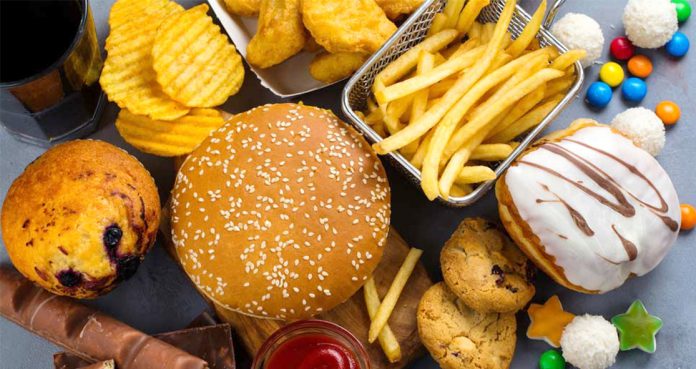According to a new study published Wednesday in JNCI Cancer Spectrum, poor diet is associated with an increased risk of cancer.
In 2015, in the United States, more than 80,100 new cancer cases among people 20 and above were associated with eating a poor diet, the study found.
The first author of the study and a nutrition and cancer epidemiologist at Tufts University in Boston Dr. Fang Fang Zhang said, “This is equivalent to about 5.2% of all invasive cancer cases newly diagnosed among US adults in 2015.” She added, “This proportion is comparable to the proportion of cancer burden attributable to alcohol.”
The investigators evaluated seven dietary factors that could have increased the risk of cancer. They included low intake of veggies, fruits, whole grains and dairy products and a high intake of red meats, processed meats and sugary beverages.
Dr. Zhang said, “Low whole-grain consumption was associated with the largest cancer burden in the US, followed by low dairy intake, high processed-meat intake, low vegetable and fruit intake, high red-meat intake and high intake of sugar-sweetened beverages.”
“Previous studies provide strong evidence that a high consumption of processed meat increases the risk of colorectal cancer and a low consumption of whole grains decreases the risk of colorectal cancer,” Dr. Zhang added. “However, our study quantified the number and proportion of new cancer cases that are attributable to poor diet at the national level.”
The examiners also found that colorectal cancers were amongst the highest number, at more than 38 percent.
However, the study had a few limitations, as the data was not able to shed light on the association between poor diet and cancer risk and how it may change as the age progresses. So, more research is required to determine that association.
Dr. Zhang explained, “Diet is among the few modifiable risk factors for cancer prevention. These findings underscore the needs for reducing cancer burden and disparities in the US by improving the intake of key food groups and nutrients.”
According to a study published last year in the journal JAMA Internal Medicine, people who regularly eat organic foods lowered their risk of developing cancer. And according to another study published in the same journal in February, people who eat ultra-processed foods face a 14% risk of premature death. An associate professor in the Department of Nutritional Sciences at Rutgers University Nurgul Fitzgerald said, “We are living in a fast world, and people are looking for convenient solutions. We are always stretched for time. People are looking for quick solutions, a quickly made meal.”





















